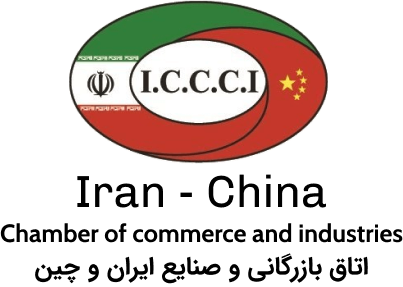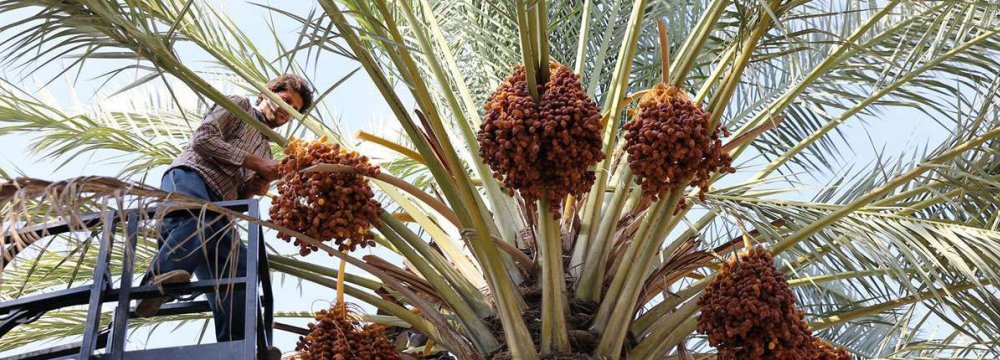With 1.4 million tons of annual production, Iran is among the top three producers of dates in the world, says an official with the Agriculture Ministry.
“In the last [Iranian] year [March 2021-22], 340,000 tons of dates were exported from Iran,” Zahra Jalili-Moqaddam was also quoted as saying by IRIB News during a recent visit to the southern Fars Province, a major producer of dates in Iran.
Egypt and Saudi Arabia are Iran’s major rivals in the global dates market.
Jalili-Moqaddam noted that India has the biggest share of Iran’s dates export, adding that Pakistan is the next major destination.
“Iran is the biggest exporter of dates in the world,” Chairman of the National Association of Iranian Dates Mohsen Rashid Farrokhi told Financial Tribune in an earlier interview, noting that Egypt ranks second with Saudi Arabia and Tunisia sharing the third spot on the export front.
“Two of Iran’s southern neighbors, namely Saudi Arabia and the UAE, are reportedly expanding their palm-groves. This can turn them into serious rivals to Iran’s international dates market. At present, our production surpasses theirs by only 50,000-100,000 tons per year. This calls for prompt action on the part of Iranian producers and traders active in the field to elevate our marketing methods and promote the delectable Iranian dates,” Farrokhi was quoted as saying by ILNA.
The official noted that Afghanistan is also planning to replace part of its poppy cultivation with date palms, adding that due to that country’s geographical location there is only little land where palm-groves could be grown and therefore the harvest will also be relatively meager, which cannot compete with Iranian dates in the foreign markets.
A total of 388,405 tons of different types of dates worth $296 million were exported from Iran to 85 countries in the fiscal 2020-21, according to the head of the Agriculture and Food Industries Commission of Iran Chamber of Cooperatives.
“India, Malaysia and Russia were the main destinations, exports to which accounted for 16%, 11% and 9.9% of Iran’s total sale of dates respectively during the period. Other destinations were Pakistan, Afghanistan, Turkey, the UAE, Kazakhstan, Germany, the Netherlands, Sweden, Poland and the UK,” Arsalan Qasemi was also quoted as saying by IRNA.
According to Rouhollah Latifi, former spokesman of the Islamic Republic of Iran Customs Administration, 38,152 tons of dates worth $211.64 million were exported from Iran to 85 countries in the fiscal 2019-20.
The Food and Agriculture Organization of the United Nations says 8.5 million tons of dates are produced on palm-groves worldwide.
More than a dozen types of dates are mainly cultivated in six Iranian provinces, namely Kerman, Sistan-Baluchestan, Khuzestan, Hormozgan, Bushehr and Fars, all in the south of the country.
Iran is said to export around 20% of its overall production every year.
Per capita dates consumption in Iran is 3 kilograms per year.
Global Market
The dates market accounted for around 9.6 million tons and it is anticipated to witness a CAGR of 4.6% during 2021-26, according to Mordor Intelligence.
The broadening of trade sanctions and high tariff barriers in reaction to the Covid-19 pandemic had a drastic detrimental effect on global food security. The Middle East and North African region is the largest dates producer and supplier worldwide.
Over the long term, the increased consumption of dates across the world, with the rising awareness about health benefits and rising demand for dates from the processing industries, is expected to drive the market growth over the study period.
Fresh dates offer a variety of health benefits. They are a good source of vitamins and minerals such as calcium, iron, phosphorus, sodium, potassium, magnesium and zinc. They also contribute fiber to the diet and have been shown to help prevent abdominal cancer.
However, some factors such as stringent regulations, risk of pests and diseases, and political uncertainties in the Middle East region are expected to restrain the market growth during the forecast period.
Middle East and Africa is observed as the largest market for dates. Egypt, Algeria, Saudi Arabia, Sudan, the UAE, Iraq, Oman and Morocco dominate the MENA region, based on the volume of dates consumption. Egypt ranked first, with the consumption of 1.6 million ton of dates in 2019. The highest per capita dates consumption was recorded in Oman, followed by the UAE, Algeria and Saudi Arabia. Their consumption is expected to grow significantly during the forecast period.
Dates are the fruit of the date palm tree, which is grown in many tropical regions of the world. Dates have a long shelf life and may be eaten fresh or dried. There are about hundreds of dates varieties in the market.
The UAE was the largest dates importer in 2019, with an import volume of 632,000 tons. The imported growth in terms of quantity was recorded at 219% per annum from 2018-19. India ranked second in dates imports worldwide in 2019, with an import of about 282,000 tons. Indonesia is another major importer of dates in the Asia-Pacific region.
Consumption is also rising in European countries, including France, Germany, the United Kingdom and the Netherlands. European consumers are searching for healthier alternatives to snack between meals or for snacks that can replace meals. Younger consumers are switching from sweets such as candies and chocolate snacks to low-sugar alternatives. Thus, considering these factors, the dates market is expected to register further growth.
Dates have a special significance in Muslim countries, as they are traditionally served to break the fast during the holy month of Ramadan and at receptions, funerals and after meals.





